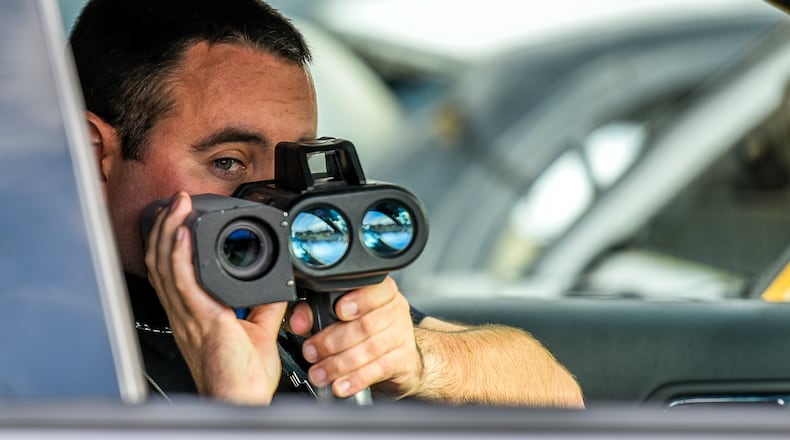Here are five things to know about how the law will impact the unpopular speed camera program:
1. State funding vs. speed camera cash
New Miami’s third party vendor collected $352,681 in fines from speeders last year and forwarded $270,099 — the village’s share of the virtually automatic $95 ticket is 65 percent, or $61.75 — back to the village.
The state intends to reduce local government funds it sends to jurisdictions with speed cameras by the amount the village collects from speeders. The village received $52,448 in local government funds from the state last year.
RELATED: The state’s transportation bill could have a big impact on Butler County. Find out why.
New Miami Mayor Bob Henley said he is unconcerned about the potential loss of local government funds.
“I don’t really understand it because they’ve cut the small governments so much in the last few years anyway,” Henley said. “They send us hardly any money at all anymore. So big deal.”
But the new law also states if the municipality receives less from the state than it reaps in speeding ticket fines, then local government funds will be reduced for the next year as well.
2. Can Hamilton Municipal Court handle New Miami’s ticket disputes?
The new state law that takes effect in July mandates the courts hear speeding ticket appeals, disallowing the administrative hearing method the village has employed. Since November 113 drivers have asked a New Miami hearing officer to expunge the traffic tickets they received as a result of the speed cameras.
New Miami Solicitor Dennis Adams said he hasn’t had an opportunity to ask Hamilton Municipal Court Judge Dan Gattermeyer if he can handle the added caseload.
“I still have to have discussions with Judge Gattermeyer to determine if there is even docket space available to accommodate these hearings and work out the logistics of doing that,” Adams said.
Ohio Supreme Court data show the judge handled 22,968 cases in 2017. However, since the city of Hamilton also runs a speed camera program, those appeals would go to Gattermeyer also.
3. Additional court costs
Legislators have also mandated the speed camera jurisdictions have to pay court costs and “the court shall retain the advance deposit regardless of which part prevails prevails” and cannot assess alleged speeders any court costs or fees.
Adams said that is another topic he’ll be discussing with the judge.
4. To sue or not to sue?
Larger jurisdictions, like Dayton, have vowed to sue the state over this latest attempt to brake speed enforcement programs. Henley said the village will be on the side lines.
“I know there is a couple of the cities, the bigger cities that can afford to fight it, so my thought is I’ll let the big people fight it and we’ll do what we do,” Henley said. “They got a hell of a lot more money than we do to fight this.”
5. One of the new law provisions is already an issue in $3 million lawsuit New Miami is fighting
New Miami has spent $352,681 to-date fighting about 33,000 speeders who sued in Butler County Common Pleas Court six years ago over the old speed camera program. One of the issues is whether the village is liable for the entire $3.1 million speeders paid or $1.8 million it received after Optotraffic took its cut. Judge Michael Oster hasn’t issued a final judgment yet but has indicated the village is on the hook for the total amount. The village has asked him to reconsider.
Many jurisdictions, including Hamilton, use third party vendors to administer the speed camera programs but the new law, when docking the speed camera revenues from local government funds uses the gross amount, not what the jurisdictions actually receive.
About the Author
